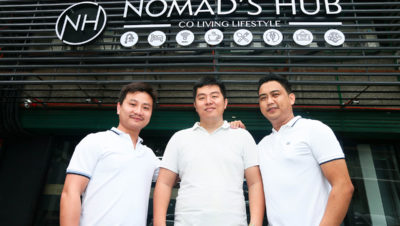
I started my intermittent fasting (or as some would prefer to call it, time-restricted eating) in July of 2018. In a year’s time, I lost 30 lbs.
Last August I started OMAD or the One Meal a Day plan. In four months I lost 40 lbs. more. So, all in all, I lost 70 lbs.
The reason I went into this is so I can stop taking medications to bring my blood sugar down. Two hours after I eat a low-calorie meal my blood sugar level is around 120 to 140.
When I eat a high-calorie meal, like when I add fruits, chocolate or ice cream to what I consume, my sugar level goes from 160 to a little over 200. When this happens one could either take medications (such as metformin, sitagliptin, glimepiride or a combo of these meds or insulin) that would make the sugar levels go down to 110 or thereabouts in 2 to 3 hours. Or, as what I do, I skip meals and in 3 to 5 hours my blood sugar gets to the same level. And since I skip all snacks and 2 meals it often goes down to around 101 to 97 the following morning. And at times when I go on a 42 to 46 hour fast it goes down to 78.
The reasons why I prefer the latter are: First, maintenance medication can be expensive and the dosage increase in time; secondly, I love the opportunity that it gives me to exercise my will power and third, there are other benefits of fasting aside from bringing your weight and sugar level down. (We will go into this last part in some other article.)
Are there any downsides to this practice? There are but they are mostly psychological. Let’s get into some of them.
1. The hypochondriac blues. With those around you suspecting that you are sick, you sometimes begin to believe that you are. Like when I feel tired after I walk around 3 to 4 kilometers I begin to suspect that I am having hyperglycemia and ruin my fast by taking in some carbs. And when I feel cold inside the mall I begin to wonder if there is something wrong with my body although everybody in my weight level would feel the same way. Now with Siberian winds entering our area, I do feel cold in the early morning and late afternoon even outside the malls.
2. The two-hour fatigue. Sometimes in the late afternoon, I would feel tired and sad for no particular reason. This often lasts for 1 to 2 hours. After which my spirit and energy will bounce back. This fatigue though only occurs when I wander about aimlessly. When I have a program or an agenda it does not get to me.
3. Irritating Inquiries. Friends you have not seen for some time will ask, often with startled faces, “What happened to You?” Or “Are you okay?” Then they don’t stop there. They will advise you to see a doctor or get a medical check-up even if you are not feeling ill. Then they will tell you that you have to be sure because it could be asymptomatic.
4. Manu po. A person who is 65 years old will call you Kuya (elder) even though you are still 57. Oh, my, I really do look old. My friend though reassured me that this because my body has still to adjust my new weight and that in a year or two I will begin to look my age. It better because people aged 75 will also start calling me Kuya. This can’t all be that bad though if you want to take advantage of this look. Some commercial places that are not so strict will offer you the benefits given to senior citizens.
5. Unholy preacher. When you discover something new that works well you begin blabber about it in casual conversation and start posting about it relentlessly in Facebook (that your pals will advise you to cool it or chill.) And when they doubt what you say you could get fired and start to be argumentative. Just continue posting but only deal about your personal experience and don’t make it sound like it’s a general occurrence or that it is the gospel truth. And in person don’t volunteer information only talk about it when they ask you and make your answer succinct.
So far these are the downsides that I have observed after practicing intermittent fasting for over a year. Should other things come up I will write about them.
comments are temporarily disabled.












